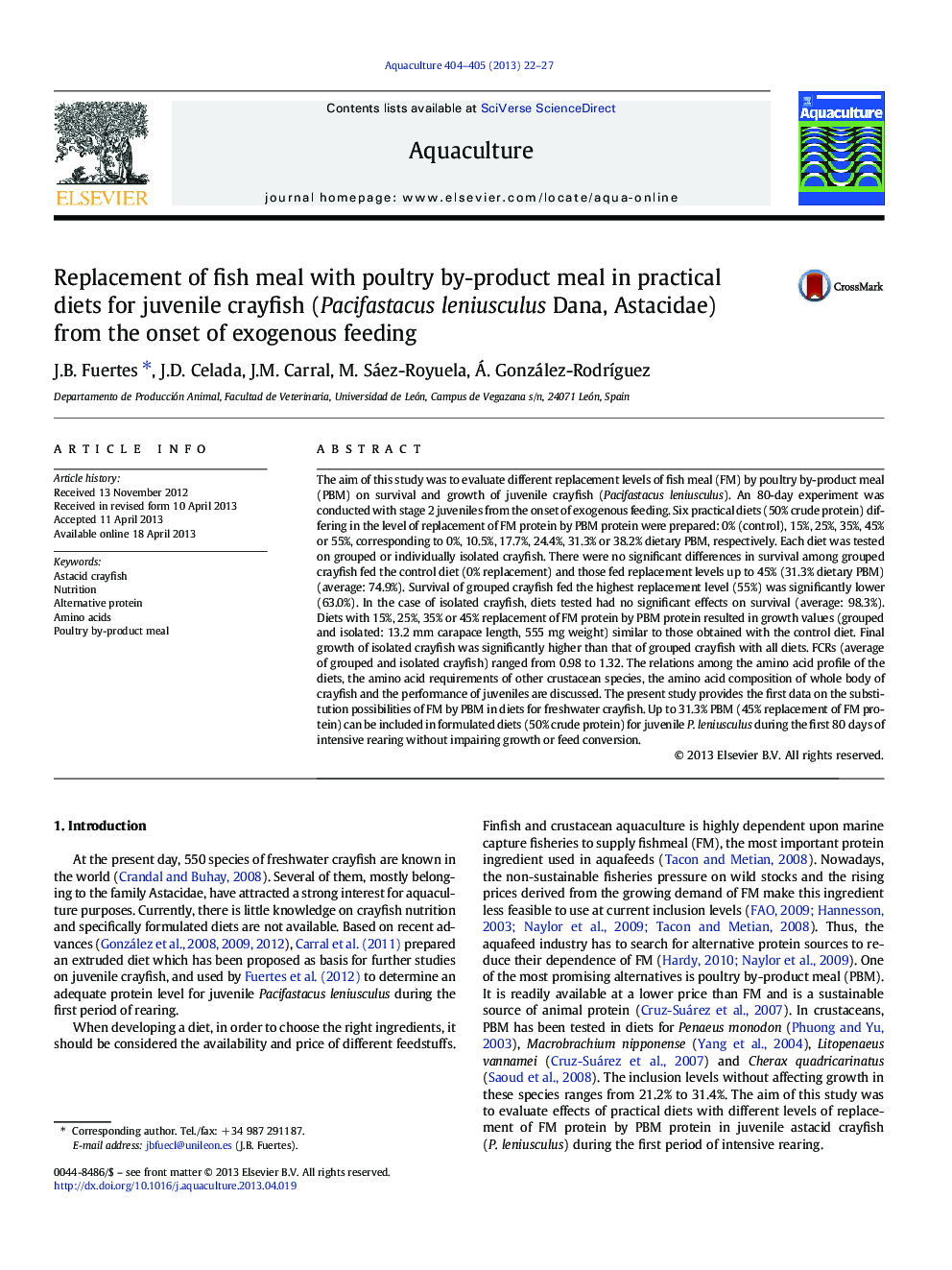| Article ID | Journal | Published Year | Pages | File Type |
|---|---|---|---|---|
| 8495621 | Aquaculture | 2013 | 6 Pages |
Abstract
The aim of this study was to evaluate different replacement levels of fish meal (FM) by poultry by-product meal (PBM) on survival and growth of juvenile crayfish (Pacifastacus leniusculus). An 80-day experiment was conducted with stage 2 juveniles from the onset of exogenous feeding. Six practical diets (50% crude protein) differing in the level of replacement of FM protein by PBM protein were prepared: 0% (control), 15%, 25%, 35%, 45% or 55%, corresponding to 0%, 10.5%, 17.7%, 24.4%, 31.3% or 38.2% dietary PBM, respectively. Each diet was tested on grouped or individually isolated crayfish. There were no significant differences in survival among grouped crayfish fed the control diet (0% replacement) and those fed replacement levels up to 45% (31.3% dietary PBM) (average: 74.9%). Survival of grouped crayfish fed the highest replacement level (55%) was significantly lower (63.0%). In the case of isolated crayfish, diets tested had no significant effects on survival (average: 98.3%). Diets with 15%, 25%, 35% or 45% replacement of FM protein by PBM protein resulted in growth values (grouped and isolated: 13.2Â mm carapace length, 555Â mg weight) similar to those obtained with the control diet. Final growth of isolated crayfish was significantly higher than that of grouped crayfish with all diets. FCRs (average of grouped and isolated crayfish) ranged from 0.98 to 1.32. The relations among the amino acid profile of the diets, the amino acid requirements of other crustacean species, the amino acid composition of whole body of crayfish and the performance of juveniles are discussed. The present study provides the first data on the substitution possibilities of FM by PBM in diets for freshwater crayfish. Up to 31.3% PBM (45% replacement of FM protein) can be included in formulated diets (50% crude protein) for juvenile P. leniusculus during the first 80Â days of intensive rearing without impairing growth or feed conversion.
Related Topics
Life Sciences
Agricultural and Biological Sciences
Aquatic Science
Authors
J.B. Fuertes, J.D. Celada, J.M. Carral, M. Sáez-Royuela, Á. González-RodrÃguez,
